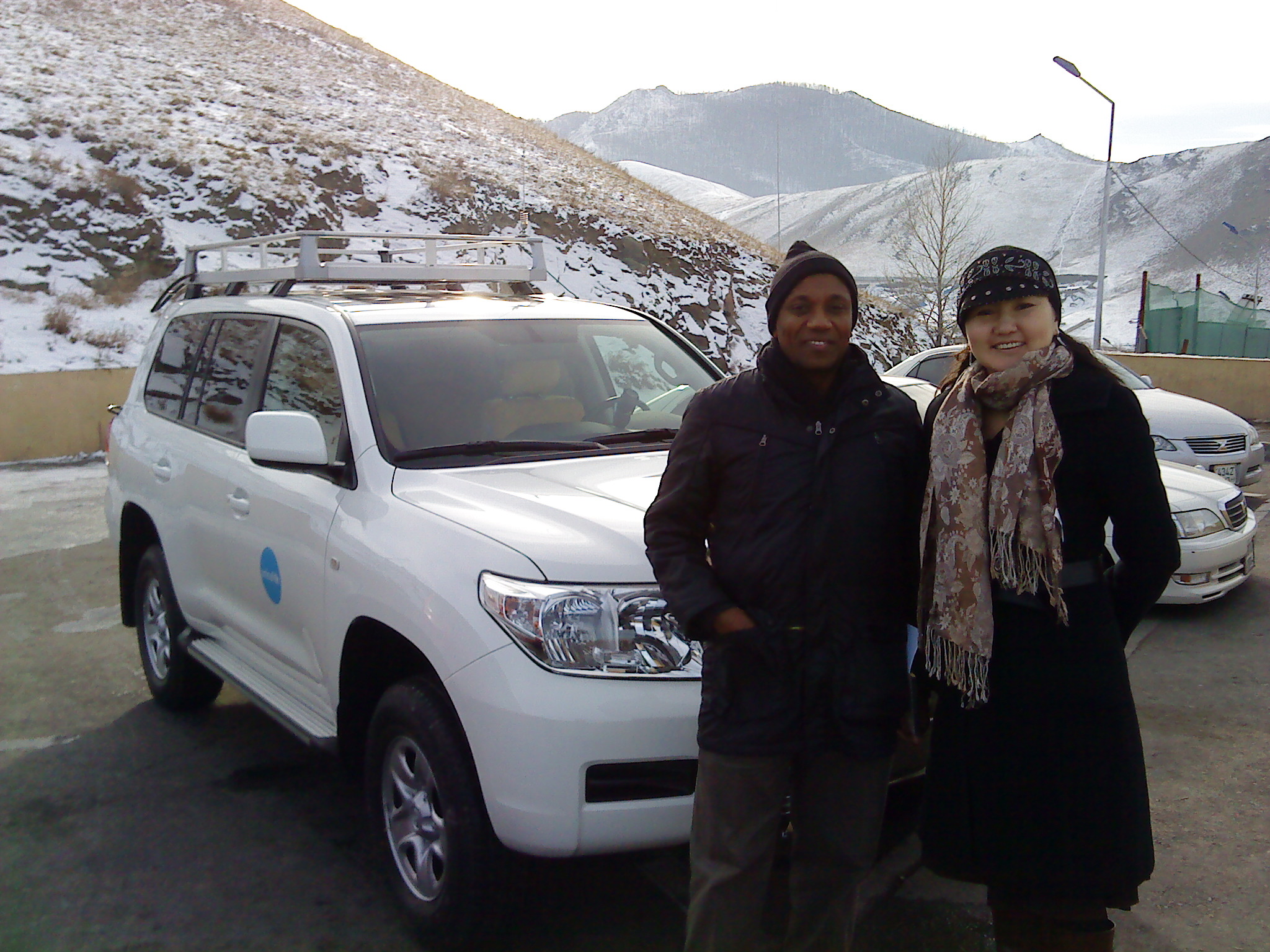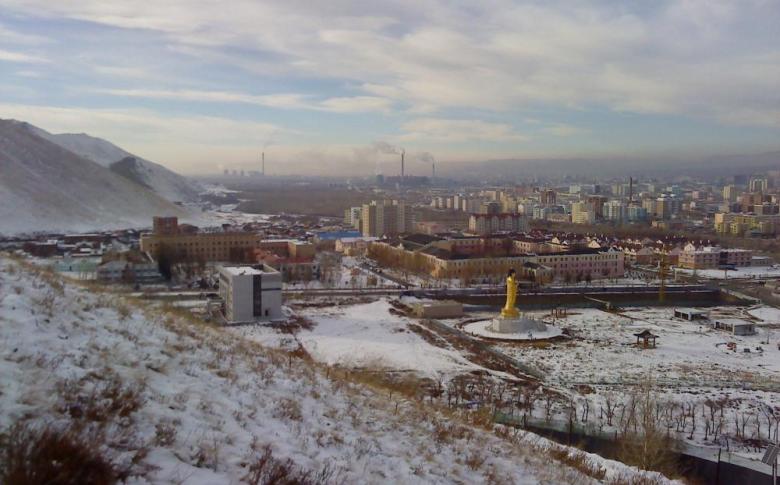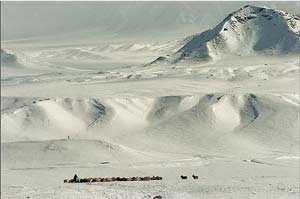
Dzud. noun. (Mongolian: зуд)

Dzud. noun. (Mongolian: зуд) Mongolian term for an extremely snowy winter in which large numbers of animals die due to starvation and the cold.
“We had a very difficult period last winter,” said Uranchimeg Badambazar, UNICEF ICT Officer in Mongolia. “Millions of livestock died as a result of the dzud. Now there are thousands of people in the provinces who have completely lost their livelihoods and their primary source of food. And we are about to go into another winter. Who knows what will happen.”
The dzud during the winter of 2009/2010 killed over 9.4 million head of livestock across Mongolia, destroying the source of income for 40% of the country’s population and causing widespread food insecurity. With millions of animal carcasses littering the country, the government declared disaster status across more than half of Mongolia’s 21 provinces. Now, as temperatures cool again, the UN Children’s Fund (UNICEF) and the UN World Food Programme (WFP) are together working on the best strategy to ensure the telecommunications networks are prepared to coordinate another emergency operation.
“We need additional preparedness measures for such emergencies,” says Uranchimeg. “The humanitarian clusters, including the Emergency Telecommunications Cluster (ETC), are working to establish a more systematic way of delivering assistance in a country where the lack of road infrastructure (less than 2% of the country has sealed roads) and severe weather conditions make logistics extremely challenging and put the safety of staff at risk on any field mission.”
A joint assessment of the security and data communications infrastructure was carried out in November by Uranchimeg along with Sammy Njoe, UNICEF Regional IT Officer Asia/Pacific, Vicente Arandia, UNICEF Operations Officer in Ulaanbaatar, and John Bursa, WFP Regional IT Officer for Asia/Pacific based in Bangkok.
“We arrived in Ulaanbaatar’s Genghis Khan Airport to a rather chilly minus two degrees on a Sunday afternoon,” says John. “Rapid acclimatization was necessary for those of us more used to the heat and humidity of South-East Asia!”
“Together with Vicente and Uranchimeg, we conducted an ETC capacity building discussion and formulation of ETC terms of reference,” says John. “We had meetings with UNDSS (UN Department of Safety and Security) to discuss procedures, equipment and communications challenges.”
“One of the biggest challenges is the extreme weather,” says Uranchimeg. “We have very hot dry summers (35+ degrees Celsius) and very cold winters (-35 degrees Celsius). When it comes to ICT, if we need to install something, the work needs to be done in between the two extreme seasons.”

The extreme temperatures are becoming increasingly common in Mongolia and contribute to the severity of dzud. Hot dry summers mean crops fail and food for people and livestock does not grow. Extremely cold winters mean livestock cannot find fodder through the ice and they starve or freeze to death across the country’s barren landscape. Adding to the need to ensure effective communication is the growing concern that the capital city – where 60% of the population reside - is at risk of a major earthquake.
“Because Mongolia is a very spread out country, all the areas are not fully connected,” says Uranchimeg. “When we need to travel to the countryside, we travel by car because the weather makes air travel difficult. We travel long distances, experiencing unpredictable conditions including snow and sand storms, through areas that are not populated. In order to ensure the safety of staff during travel, we need to establish a reliable radio network”.
“Local technical support was also provided, with complete reprogramming of all UNICEF HF and VHF radios, formulation of HF/VHF channel plans and establishing a master callsign and selcall list for the country,” says John. “We also inspected the new common UN building site, which was on a fast track given the rapidly approaching winter. We didn’t see anything over minus three degrees during the day with minus 18 degree nights throughout the mission. That would be cold enough to halt any construction program elsewhere.”
“Mongolia is a huge country so field support for the clusters is essential for all agencies operating in the country so that we can deliver results to the people,” says Uranchimeg. UN High Commission for Refugees (UNHCR), World Health Organization (WHO), UN Office for Project Services (UNOPS), UN Population Fund (UNFPA), Food and Agriculture Organization (FAO) and UN Development Programme (UNDP) also have missions in Mongolia. “We hope to start regular inter-agency meetings in Mongolia soon.”

“We have a lot of equipment already installed but not all agencies have the same capacity”, says Uranchimeg. “This assessment helped us to identify areas that need improving. We hope to have a standard system working for the next emergency where we can combine resources and have a more secure means of communications.”
“The final challenge proved to be getting out of the country,” says John. “Our departure was delayed by nine hours following a wild and windy snow storm that kept our flight grounded in Beijing.”
“We have already had very severe snow storms this winter,” says Uranchimeg. “Through the application of the Cluster Approach, we hope that if another dzud strikes Mongolia, we will have the necessary telecommunication infrastructure in place to be able to effectively and efficiently coordinate our response.”